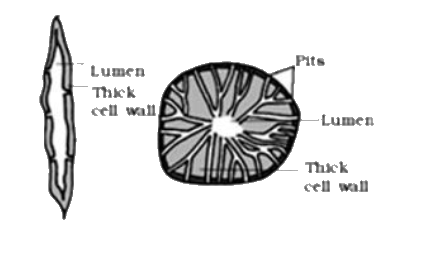All cell of a plant are descendents of the zygote.
The correct Answer is:1
Step-by-Step Solution:
1. Understanding the Statement: The statement claims that all cells of a plant are descendants of the zygote. We need to determine if this is true or false.
2. Defining Key Terms:
- Descendants: In this context, it means that all cells in the plant originate from the zygote.
- Zygote: This is the fertilized egg that forms when the male and female gametes fuse during fertilization.
3. Process of Fertilization:
- Fertilization occurs when the male gamete (sperm) and the female gamete (egg) unite.
- This fusion results in the formation of a zygote.
4. Development from Zygote:
- After fertilization, the zygote undergoes a series of cell divisions.
- These divisions are precise and ordered, leading to the development of the embryo.
5. Formation of Plant Structures:
- The embryo formed from the zygote will eventually differentiate into various parts of the plant, including roots, stems, leaves, and flowers.
- All these cells are derived from the original zygote through continuous cell division and differentiation.
6. Conclusion: Since all cells of the plant originate from the zygote through this process of division and differentiation, the statement is true.
Final Answer: The statement "All cells of a plant are descendants of the zygote" is True.
---
- Descendants: In this context, it means that all cells in the plant originate from the zygote.
- Zygote: This is the fertilized egg that forms when the male and female gametes fuse during fertilization.
- Fertilization occurs when the male gamete (sperm) and the female gamete (egg) unite.
- This fusion results in the formation of a zygote.
- After fertilization, the zygote undergoes a series of cell divisions.
- These divisions are precise and ordered, leading to the development of the embryo.
- The embryo formed from the zygote will eventually differentiate into various parts of the plant, including roots, stems, leaves, and flowers.
- All these cells are derived from the original zygote through continuous cell division and differentiation.
Topper's Solved these Questions
- PLANT GROWTH AND DEVELOPMENTBOOK - ALLENCHAPTER - PLANT GROWTH AND DEVELOPMENTEXERCISE - Diagram Based question
7 Videos
- PLANT GROWTH AND DEVELOPMENTBOOK - ALLENCHAPTER - PLANT GROWTH AND DEVELOPMENTEXERCISE - Match the Column
2 Videos
- PLANT GROWTH AND DEVELOPMENTBOOK - ALLENCHAPTER - PLANT GROWTH AND DEVELOPMENTEXERCISE - Fill in the Blanks
16 Videos
- PLANT DIVERSITY (Taxonomy to History of Taxonomy)BOOK - ALLENCHAPTER - PLANT DIVERSITY (Taxonomy to History of Taxonomy)EXERCISE - S
51 Videos
- PLANT PHYSIOLOGY : PHOTOSYNTHESIS IN HIGHER PLANTSBOOK - ALLENCHAPTER - PLANT PHYSIOLOGY : PHOTOSYNTHESIS IN HIGHER PLANTSEXERCISE - S
110 Videos
Similar Questions
Knowledge Check
Cell wall of plant cell is
Asemi-permeableBselectively permeableCfully permeableDimpermeable.The cell wall of a plant cell contains
AstarchBchitinCproteinDcellulose
Vacuole in a plant cell
View SolutionGiven type of plant cells are found in all of the following , except

View SolutionA : The morula passes through the phase of compaction produces two major type of cells : the peripheral cells and the inner cell mass .
R : The descendants of inner cell mass becomes the trophoblast cells.
View SolutionGive scientific terms for the following:
A few-celled structure developing from the zygote in early stages of embryonic development
View SolutionName the type of cell division that takes place in the zygote on an organism exhibiting haplontic life cycle
View SolutionWhich one of the following conditions of the zygotic cell would lead to the birth of a normal human female child?
View Solution
